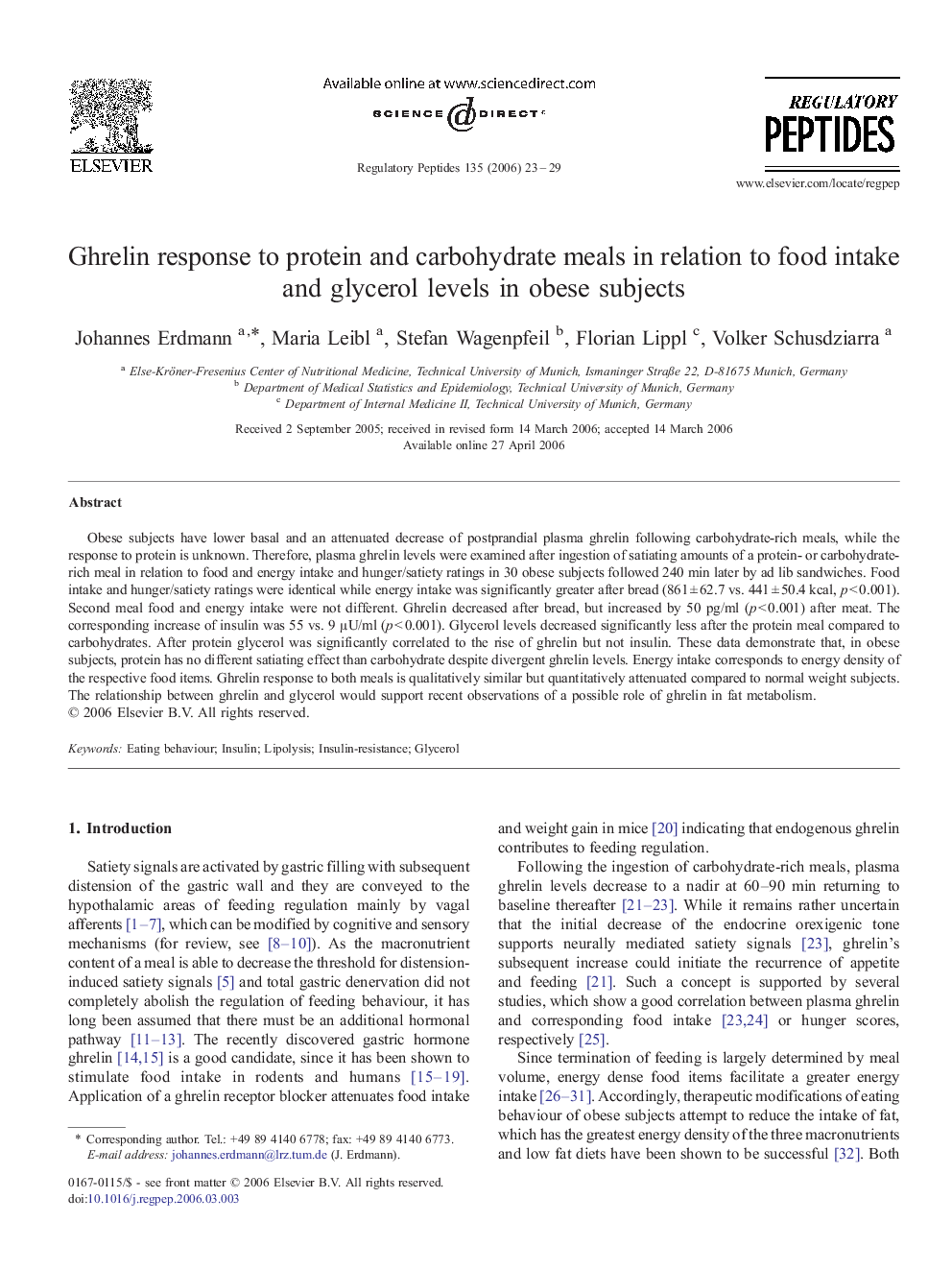| Article ID | Journal | Published Year | Pages | File Type |
|---|---|---|---|---|
| 2023395 | Regulatory Peptides | 2006 | 7 Pages |
Obese subjects have lower basal and an attenuated decrease of postprandial plasma ghrelin following carbohydrate-rich meals, while the response to protein is unknown. Therefore, plasma ghrelin levels were examined after ingestion of satiating amounts of a protein- or carbohydrate-rich meal in relation to food and energy intake and hunger/satiety ratings in 30 obese subjects followed 240 min later by ad lib sandwiches. Food intake and hunger/satiety ratings were identical while energy intake was significantly greater after bread (861 ± 62.7 vs. 441 ± 50.4 kcal, p < 0.001). Second meal food and energy intake were not different. Ghrelin decreased after bread, but increased by 50 pg/ml (p < 0.001) after meat. The corresponding increase of insulin was 55 vs. 9 μU/ml (p < 0.001). Glycerol levels decreased significantly less after the protein meal compared to carbohydrates. After protein glycerol was significantly correlated to the rise of ghrelin but not insulin. These data demonstrate that, in obese subjects, protein has no different satiating effect than carbohydrate despite divergent ghrelin levels. Energy intake corresponds to energy density of the respective food items. Ghrelin response to both meals is qualitatively similar but quantitatively attenuated compared to normal weight subjects. The relationship between ghrelin and glycerol would support recent observations of a possible role of ghrelin in fat metabolism.
